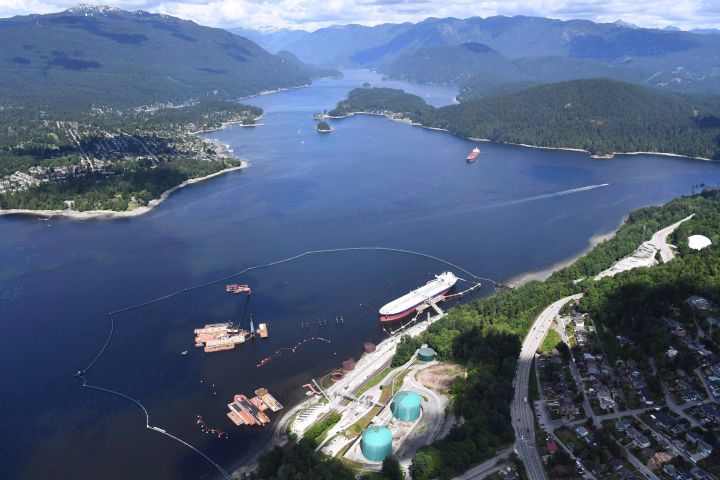The National Energy Board will hear oral traditional evidence from Indigenous groups in the coming weeks as part of its new review of the Trans Mountain pipeline expansion.

The Federal Court of Appeal struck down the federal government’s approval of the project in August, citing inadequate Indigenous consultation and the energy board’s failure to review the project’s impacts on the marine environment.
Prime Minister Justin Trudeau’s government ordered the energy board to review the marine impacts and submit a report no later than Feb. 22, and on Wednesday the board unveiled its schedule for oral traditional evidence.
Thirty-one Indigenous groups or individuals from Canada and the U.S. are scheduled to participate and the hearings will be held in Calgary the week of Nov. 19, in Victoria the week of Nov. 26 and in Nanaimo, B.C., the week of Dec. 3.
READ MORE: NEB grants intervener status to 98 groups in next round of Trans Mountain hearings
Watch below: Some videos from Global News’ coverage of the Trans Mountain pipeline.
Some First Nations that won the court battle in August, including British Columbia’s Tsleil-Waututh and Squamish Nations, say the new process is too rushed and they’re considering filing fresh court challenges after the board issues its report.
The energy board responds to concerns about the timeline in documents released Wednesday, saying there’s already significant evidence on the record and legislation requires it to conduct proceedings within the time limit set by the federal government.
The board includes oral traditional evidence because it “understands that Indigenous peoples have an oral tradition for sharing knowledge from generation to generation,” it says in the documents.
“This information cannot always be shared adequately or appropriately in writing,” it says.
The traditional evidence previously provided in the first Trans Mountain review remains on the record, it says, and board members will read transcripts prior to the new hearings.
The board adds that Indigenous interveners should file any scientific evidence or expert reports as written evidence.
READ MORE: First Nations have specific, measurable requests that could save Trans Mountain pipeline
Those scheduled to participate include the Squamish and Tsleil-Waututh, the pro-pipeline Cheam First Nation, a coalition of U.S. tribes and B.C. Green party member of the legislature Adam Olsen, who is Indigenous.
The project would increase tanker traffic seven-fold in Burrard Inlet off Metro Vancouver’s coast, raising concerns about impacts on salmon and endangered southern resident killer whales.
- Ontario First Nation declares state of emergency amid skyrocketing benzene levels
- Singh mulls TikTok return as U.S. nears potential ban over security fears
- More financial institutes are offering crypto-services, survey shows
- Possible TikTok ban in U.S. looms after Biden signs bill, setting up legal fight
















Comments